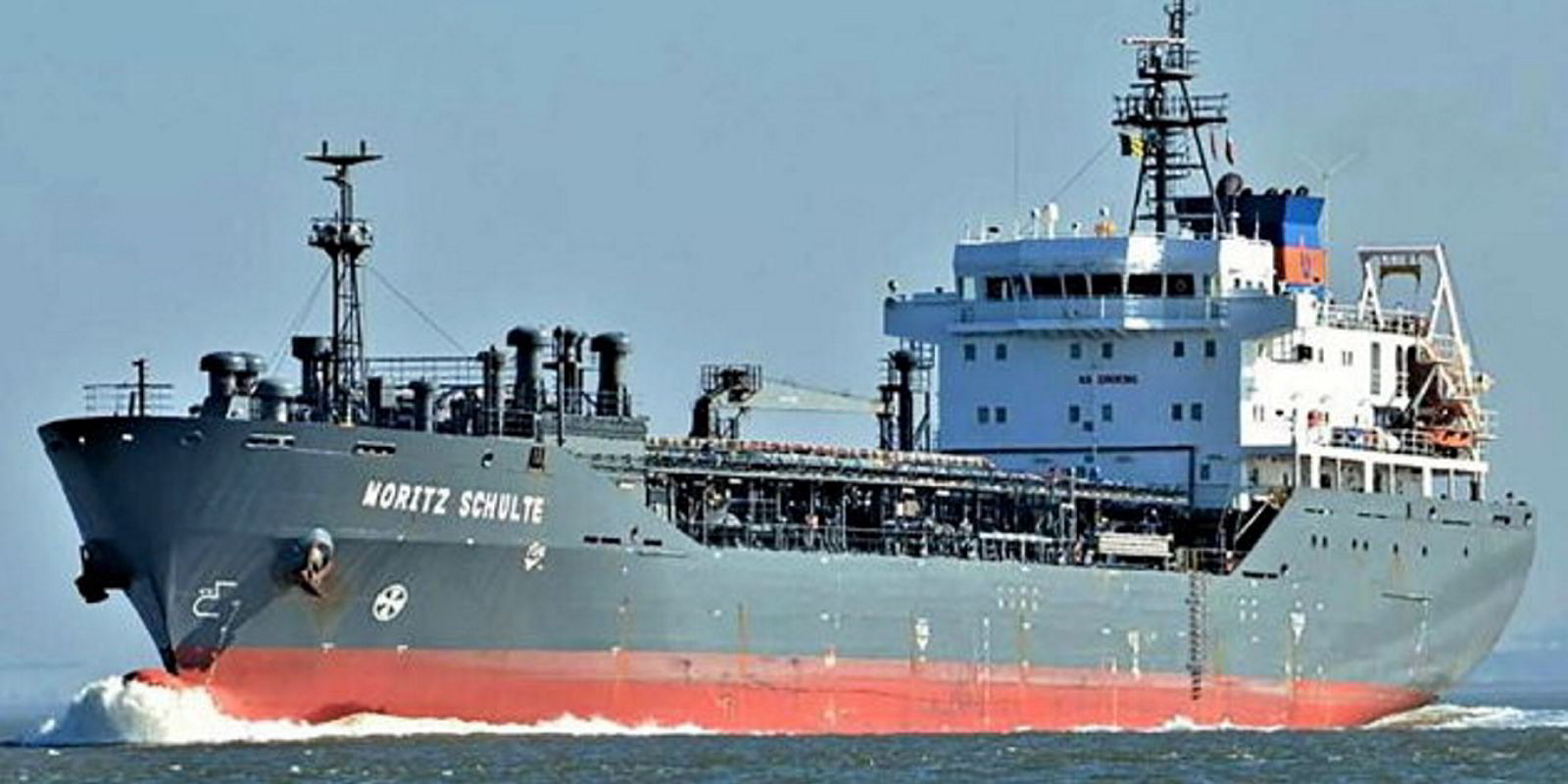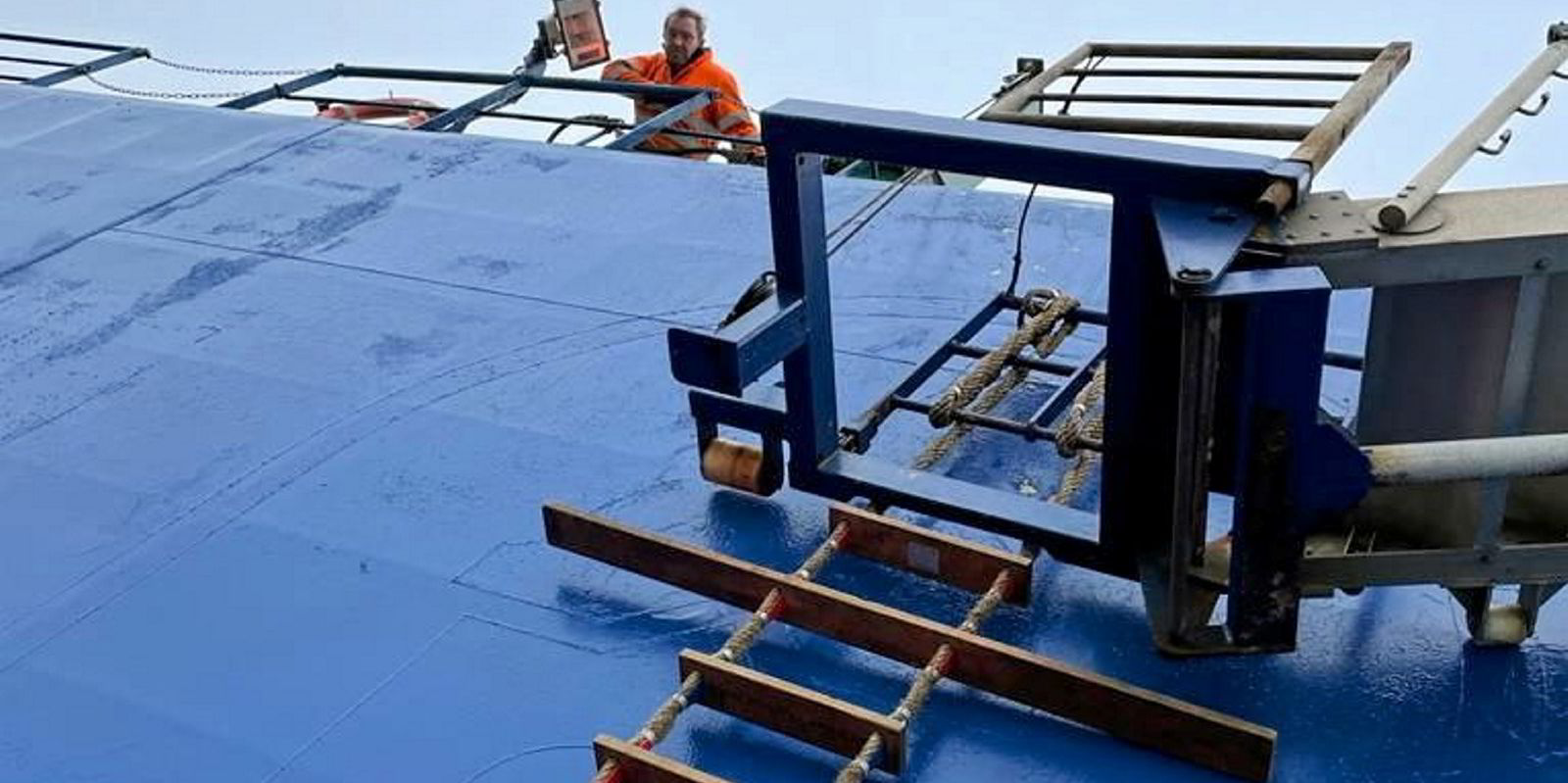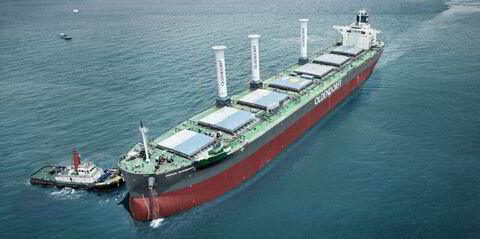A lax culture of training and promotion has been implicated in the death of a third engineer on board a Schulte Group LPG/ethylene carrier.
India seafarer Rajendra Naidu Ponnada, born in 1989, died nine days after an accident on the 8,200-cbm Moritz Schulte (built 2002) in Antwerp on 4 August, 2020.
An investigation into the incident on the Isle of Man-flagged vessel by the UK’s Marine Accident Investigation Branch (MAIB) found that the ship suffered an engine room fire while discharging a cargo of ethylene.
The newly promoted engineer, who was working on an auxiliary engine fuel filter, had not effectively isolated the fuel system and both he and an adjacent auxiliary engine’s hot exhaust were sprayed with fuel under pressure.
The fuel spray penetrated the exhaust insulation and ignited.
Prompt actions by the crew closed down the space to limit the spread, MAIB said.
But Ponnada died nine days later from the effects of smoke inhalation.
The investigation found that, despite the vessel having a full range of safe systems of work in place, the third engineer, who had worked for the company for over five years, died while attempting an “unnecessary job conducted in an unsafe way at an inappropriate time”.
There was no risk assessment or direct supervision.
An analysis of the third engineer’s training programme activity log found that only two of the 65 rank-specific tasks he was required to undertake before his promotion to third engineer had been completed with the requisite evidence.
No evidence
MAIB also found that the training system permitted line management to confirm that training had been completed without evidence being provided.
“This facilitated his promotion twice when he was not ready,” the report said.
Other findings included a lack of any evidence of poor visibility enclosed space rescue drills or escape drills using emergency escape breathing devices.
Schulte’s own investigation identified 32 actions relating to communication, crew and competence management, safety management and technical management. The company has since equipped its four vessels that were built before July 2003 with additional emergency escape breathing devices.
Bernhard Schulte Shipmanagement (BSM) said it welcomed the publication of the report.
"After the incident, BSM carried out a comprehensive review of its competency management system (CMS) and a range of issues were identified. Following the review, we undertook corrective actions across all our ship management centres to improve and reinforce our CMS and safety procedures across the company," the company added in a statement.
As a result of the actions already taken, the MAIB report made no further recommendations, BSM pointed out.
“We would, once again, like to express our sympathies for the family of the fallen seafarer. This incident serves as a tragic reminder of the importance of our emphasis on safety,” the manager said.




